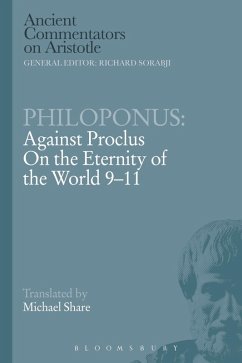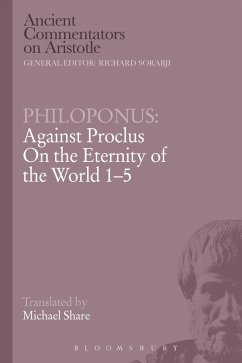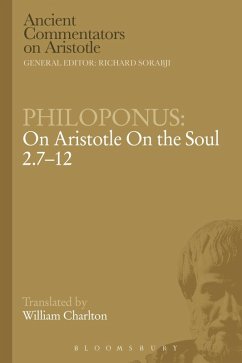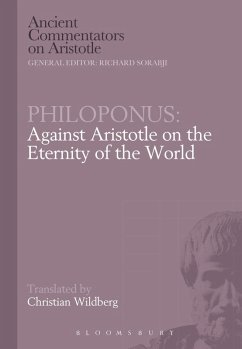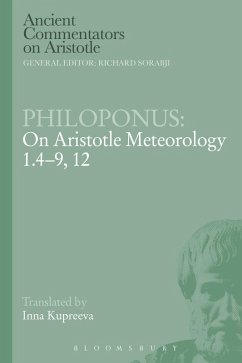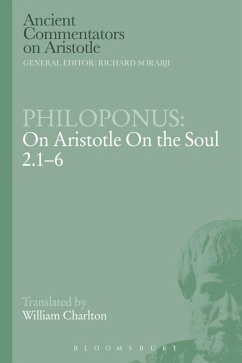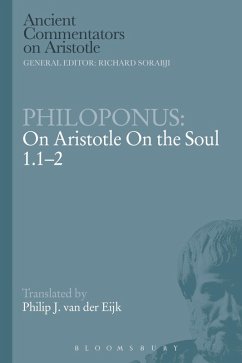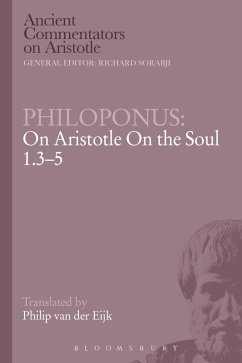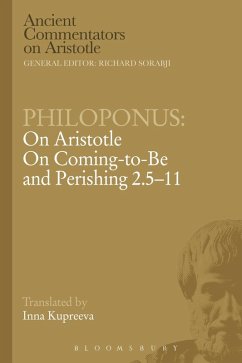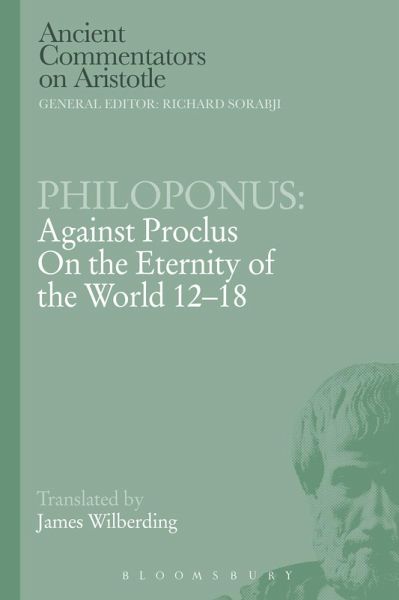
Philoponus: Against Proclus on the Eternity of the World 12-18 (eBook, PDF)
Versandkostenfrei!
Sofort per Download lieferbar
31,95 €
inkl. MwSt.
Weitere Ausgaben:

PAYBACK Punkte
16 °P sammeln!
In chapters 12-18 of Against Proclus, Philoponus continues to do battle against Proclus' arguments for the beginninglessness and everlastingness of the ordered universe. In this final section there are three notable issues under discussion. The first concerns the composition of the heavens and its manner of movement. Philoponus argues against the Aristotelian thesis that there is a fifth heavenly body that has a natural circular motion. He concludes that even though the celestial region is composed of fire and the other three elements, it can move in a circle by the agency of its soul, and tha...
In chapters 12-18 of Against Proclus, Philoponus continues to do battle against Proclus' arguments for the beginninglessness and everlastingness of the ordered universe. In this final section there are three notable issues under discussion. The first concerns the composition of the heavens and its manner of movement. Philoponus argues against the Aristotelian thesis that there is a fifth heavenly body that has a natural circular motion. He concludes that even though the celestial region is composed of fire and the other three elements, it can move in a circle by the agency of its soul, and that this circular motion is not compromised in any way by the innate natural motion of the fire.Chapter 16 contains an extended discussion of the will of God and His relation to particulars. Here Philoponus addresses issues that become central to medieval philosophical and theological discussions, including the unity, timelessness and indivisibility of God's will. Finally, throughout these seven chapters Philoponus is engaged in a detailed exegesis of Plato's Timaeus which aims to settle a number of familiar interpretive problems, notably how we should understand the pre-cosmic state of disorderly motion, and the statement that the visible cosmos is an image of the paradigm. Philoponus' exegetical concerns culminate in chapter 18 with an extensive discussion of Plato's attitude to poetry and myth.




